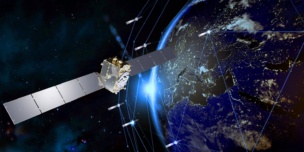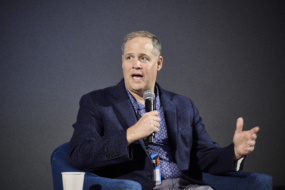Two longtime space industry insiders are launching a new consulting firm designed to help European countries navigate the process of doing business in the US, and vice versa.
Cislunar International is the brainchild of Stephen McCall, Firefly’s former government affairs director, and Samuel Peterson, a professor at Embry-Riddle Aeronautical University who spent 8+ years working for the European Space Agency. Together, they believe they can help small space startups navigate state, domestic, and international regulations at a fraction of the price of larger lobbying firms.
Origin story: McCall and Peterson joined together with the intention of helping European space startups enter the US market, in addition to helping American companies get a foothold in Europe. McCall said he sees Cislunar International’s services as being especially important for smaller companies.
“If a company has five or 10 or two employees, at that point, they need to start looking at economic development, and Capitol Hill, and the European ecosystem,” he told Payload. “They need to start looking at this now, not in five years. Once they grow, many state incentives and grants are no longer there.”
McCall is based in Spain, Peterson is based in Texas, and they hope to have a full-time presence in DC as well soon to help span the globe.
Think globally: While the barriers to getting to space, such as launch costs or specialized components, are coming down, the government and regulatory barriers to reaching orbit are only increasing, Peterson said.
Cislunar International is aiming to help clients overcome a range of barriers from shepherding paperwork through an approval process and navigating Capitol Hill to providing in-person representation during overseas negotiations and helping companies understand the space culture where they’re trying to expand.
“Who do you talk to to even know which country is the best place to set up a subsidiary? What activities are interesting to different countries?” he said. “Space resources might be more interesting in Luxembourg, but EO might be more interesting in the UK.”
Many space companies have already expanded overseas, whether through setting up a subsidiary or a new office to connect with a different customer set, and Peterson said that’s just smart business.
“If you’re only domestically focused, you’re missing out, because as soon as you launch a spacecraft, it’s international in the first 10 minutes,” he said. “You’re giving up a large percentage of time a satellite can be active in delivering service to someone.”
Act locally: Cislunar International is aiming to help companies navigate state regulations as well, whether that’s helping international companies find the best US state to house an international HQ, assisting startups in applying for incentives or grants, and making sure companies understand any state-level politics or policies that would impact their operations.




